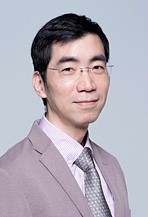交通学院“JOIN论坛”学术论坛系列活动预告
“阡陌交通、中西交融”大师论坛
本场讲座主讲人:新加坡南洋理工大学 Siu-Kui Au教授

主讲人: Siu-Kui Au,新加坡南洋理工大学教授,美国土木工程协会动力学分会主席(2014-17),Structural Health Monitoring (Sage), Earthquake Spectra (EERI/Sage) 与Journal of Risk & Uncertainty Analysis in Engineering (ASCE-ASME) 副主编。

主持人:朱逸尘副研究员东南大学交通学院
时间: 2022年12月14日,上午11:00(星期三)
腾讯会议:148-767-926
腾讯会议链接:

Title: In-situ structural dynamic properties, uncertainties and monitoring
Abstract:
The dynamic characteristics, or ‘modal properties’, of a structure include primarily the natural frequencies, damping ratios and mode shapes. They are the interface between the mechanical properties of a structure (e.g., stiffness, mass) and its response under dynamic loads such as wind and earthquakes. New design concepts, tightened performance criteria and targets for cost-effectiveness have led to an increasing demand for in-situ modal identification, providing a factual basis for decision making in vibration control, retrofitting or structural health monitoring (SHM). Depending on budget and constraints, the modal properties may be determined using free (no loading), forced (known specified loading) or ambient (unknown broadband loading) vibration tests. The last category, also known as ‘operational modal analysis’ (OMA), has attracted much attention in both theory and practice as they provide an economical means for in-situ testing. Under challenging field environment and in the absence of loading information, however, issues on reliable identification and test planning become especially relevant. This talk will give an overview of Bayesian approach for operational modal analysis, which offers a fundamental means for identifying modal properties as well as quantifying their uncertainty consistent with modelling assumptions and data information. Challenges and latest advances will also be discussed. E.g., ‘uncertainty laws’ have now been discovered that allow one to understand how identification uncertainty depends on test configuration (e.g., number, location and quality of sensors), and provide a strong scientific basis for planning ambient tests and designing SHM systems. A model class selection perspective will also be discussed for tracking in-situ properties and detecting anomalies in SHM, reconciling between time-invariant models and time-varying properties.
Bio:
Dr Au performs fundamental and applied research in engineering reliability methods and structural health monitoring. He has developed an advanced Monte Carlo method called Subset Simulation that has found applications in uncertainty propagation and rare event simulation in many disciplines, e.g., earthquake, geotechnical, aerospace, fire, electrical, meteorological and nuclear engineering. Dr Au is experienced in full-scale dynamic testing of structures and has consulted on vibration projects on, e.g., long-span pedestrian bridges, large-span floors, super-tall buildings and microtremors for seismic microzonation. Recent research in this area focuses on fundamental theory, computational algorithm and practical implementation of Bayesian approach for modal identification and structural system identification of full-scale structures. Dr Au chaired the ASCE Dynamics Committee (2014-17); is Associate Editor of Structural Health Monitoring (Sage), Earthquake Spectra (EERI/Sage) and Journal of Risk & Uncertainty Analysis in Engineering (ASCE-ASME); and is Editorial Board Member of Probabilistic Engineering Mechanics (Elsevier).
讲座题目:
结构动力学特性监测与不确定性管理
内容摘要:
结构的动力学特性,即模态参数(包括固有频率、阻尼比与振型等),是连接结构物理特性(如刚度、质量等)与风荷载、地震等动态激励下结构响应的重要媒介。随着结构设计与建造对于绿色、经济、环保等要求的提升,结构动力学特性的识别与监测在振动控制、加固改造等结构建养中的地位也变得愈发重要。本次讲座将介绍基于贝叶斯理论的结构运营模态识别方法。随后将讨论如何在环境与工况都无法控制的结构运营状态下进行模态参数识别不确定性控制与管理的前沿技术与挑战。最后将阐述结构特性时变状态下进行结构动力学特性追踪与异常诊断的方法。
大师简介:
Siu-Kui Au 教授现为新加坡南洋理工大学土木与环境工程学院教授。主要研究方向为工程结构可靠度与结构健康监测。任Structural Health Monitoring (Sage), Earthquake Spectra (EERI/Sage),Journal of Risk & Uncertainty Analysis in Engineering (ASCE-ASME) 等多个国际期刊副主编。曾任美国土木工程协会动力学分会主席(2014-17)。获IASSAR Junior Research Prize (2005), Nishino Prize (2011),JSPS Fellowship (2014) 与 Tan Chin Tuan Fellowship (2015).


